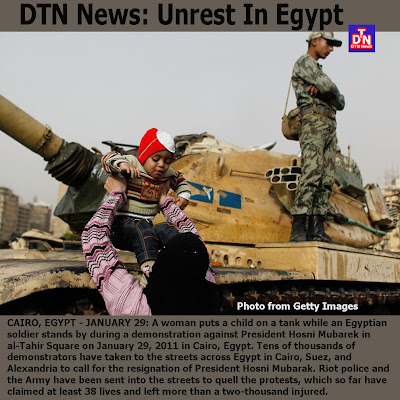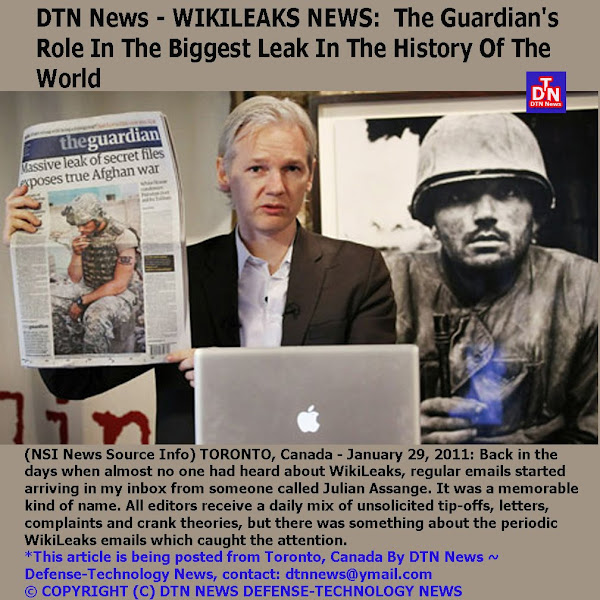
(NSI News Source Info) CAIRO, Eygpt - January 29, 2011: President Hosni Mubarak ordered tanks onto Egypt's streets and delivered a speech pledging to address the economic and political concerns of protesters, but he did not bow to the main demand that he end his 30-year rule.
WAEL ABBAS, 33-YEAR-OLD LAWYER
"It's the same speech that he's been delivering for 30 years, that no one understands anything from. His speech writers write mediocre speeches that have nothing to do with the nation and the needs of the nation. There is no change and it's a negative message for everybody."
SAMEH HASSAN, RECENTLY RETURNED EXPAT FROM SAUDI ARABIA
"The people have shown their will to the world and the world is watching. And what does Mubarak say? He takes full responsibility for this mess, but wants everyone else except himself to step down. We'll make sure he will step down as well."
SHERIF HASSAN, 42-YEAR-OLD TAXI DRIVER
"The president has his legacy since he was a commander in the October 1973 war. He doesn't want to end his presidency in personal humiliation or a sense of failure. He can't have spent 50 years fighting and toiling for Egypt in general and then in the end emerge as a traitor. He's not a megalomaniac."
http://defense-technologynews.blogspot.com/Also, further down:

WikiLeaks and similar organisations are, it seems to me, generally admirable in their single minded view of transparency and openness. What has been remarkable is how the sky has not fallen in despite the truly enormous amounts of information released over the months. The enemies of WikiLeaks have made repeated assertions of the harm done by the release. It would be a good idea if someone would fund some rigorous research by a serious academic institution about the balance between harms and benefits. To judge from the response we had from countries without the benefit of a free press, there was a considerable thirst for the information in the cables – a hunger for knowledge which contrasted with the occasional knowing yawns from metropolitan sophisticates who insisted that the cables told us nothing new. Instead of a kneejerk stampede to more secrecy, this could be the opportunity to draw up a score sheet of the upsides and drawbacks of forced transparency.
.....
Each news organisation grappled with the ethical issues involved in such contacts – and in the overall decision to publish – in different ways. I was interested, a few days after the start of the Cablegate release, to receive an email from Max Frankel, who had overseen the defence of the New York Times in the Pentagon papers case 40 years earlier. Now 80, he sent me a memo he had then written to the New York Times public editor. It is worth quoting as concise and wise advice to future generations who may well have to grapple with such issues more in future: